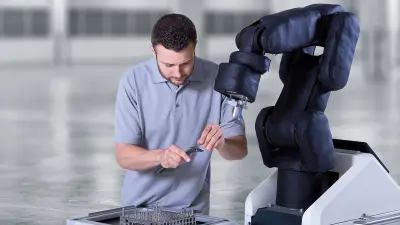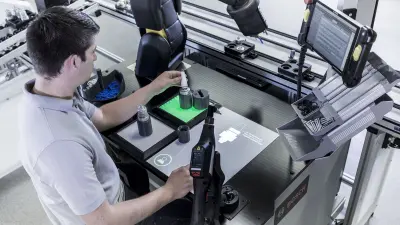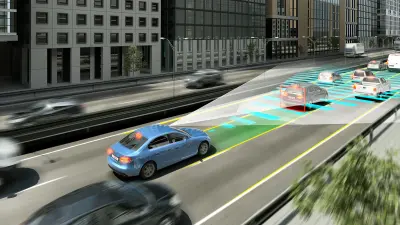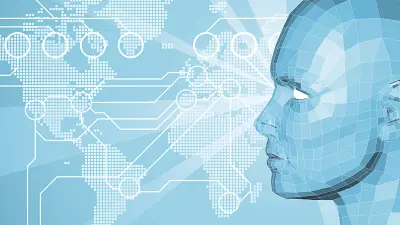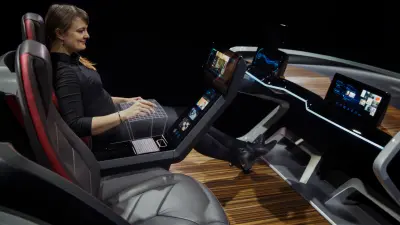Artificial intelligence: keep things in perspective

2017-05-17
The spread of artificial intelligence is a clarion call for more occupational and further training, not for a universal basic income.
by Dr. Volkmar Denner
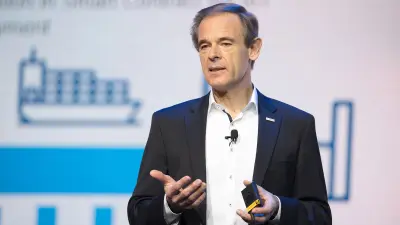
The idea that rapid technological progress could one day overtake science fiction is one that appeals and appalls in equal measure. And this appears to be no less true for the development of artificial intelligence, or AI, at least when it comes to the level of public outcry involved. We can see a veritable boom in purportedly scientific studies forecasting things such as the loss of our jobs as a result of artificial super-intelligence. My response is that we shouldn’t get carried away. In reality, we’re a lot of Turing and Nobel prizes away from super-intelligence. Of course, technology is making rapid progress, as are we in the Bosch Center for Artificial Intelligence. But we’re in the business of inventing for life, not against it.
“We’re in the business of inventing for life, not against it.”
Focus on humankind
As paradoxical as it may sound, we advocate an approach that puts humankind at the center of AI development. In other words, the companies driving forward innovation in this field also have to reflect on it ethically. When applying this new technology in business and society, four things are paramount: transparency, education, benefit, and cooperation instead of substitution. Transparency means explaining what we are doing, and not shying away from critical debate. Education means training — giving people the means to handle AI. Benefit means opting for applications that offer a positive outcome that is as immediate as possible, such as avoiding accidents and providing advance diagnosis of manufacturing errors or even illnesses. Cooperation instead of substitution means not replacing people with AI, but complementing their incomparable creativity instead.
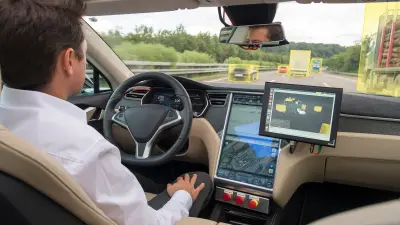
The future is smart
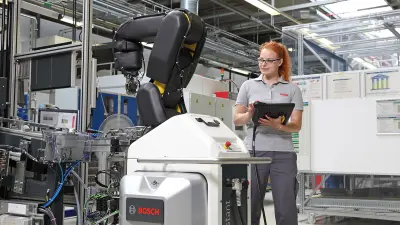
But what will artificial intelligence really be capable of in the short to medium term? I would argue that we need to consider this question dispassionately. We should not give in to the irrational temptation that is common to societies confronted with a completely new technology — summarily projecting fear onto a development that appears complex and difficult to comprehend. Anyone who concerns themselves with this subject in greater depth will soon realize that AI is developing in a very practically oriented way. But there are also visionary ideas or, to put it another way, utopias. As AI is developed further, the aim is to reproduce quasi-human intelligence using highly powerful computing and information technology that can autonomously identify and process problems.
Colleagues, not competitors
But only in the more utopian school of thought will machines outstrip human intelligence in what is known as technological singularity. Leaving such fantasies aside, the practically oriented school of AI thought is concerned with assisting human mental activity in specific use cases. These could be automated driving, or industrial robots that are sufficiently intelligent and perceptive to work together with people in a team, where they make their human colleagues’ lives easier and relieve them of routine tasks. Ultimately, this should free people up to focus on their uniquely human asset — their creativity. It is precisely this school of thought to which Bosch subscribes.
AI in our everyday life
Unwarranted pessimism
The fact that people and machines can collaborate on a higher level is ignored by the scenarios that would have us believe that artificial intelligence will rob people of their employment. Scenarios such as this are dubious. But unfortunately, they are potent as well — nothing sells so well as bad news. Take the much quoted study by the Oxford academics Osborne and Frey, which has rightly been described as a “back-of-the-envelope” study. It attempts to establish whether roughly 700 types of jobs in the U.S. can be automated or not. With scant regard for method, Osborne and Frey extrapolate from their findings to conclude that nearly half of all jobs in the U.S. are at risk. Predictions like this make even the mythological figure Cassandra appear to be an incorrigible optimist. By contrast, a study by the Nuremberg-based Institute for Employment Research concludes that, at most, 9 percent of jobs in advanced economies are at risk. But this is scarcely enough to contain public fears: there is already increasing support for the idea of a robot tax as a way of financing a universal basic income.
“Each wave of automation has led to some jobs being eliminated, generally low skilled ones. But it has also led to new ones being created, generally highly skilled ones.”
AI as a job creator
Behind this concept, however, is the pernicious idea that technological progress exists solely to destroy jobs. This idea has its roots in another one: that automation simply results in a shift in the relationship of capital and labor, with total value remaining constant. What is regularly missing from this zero-sum game is growth. Innovations such as artificial intelligence increase value creation, and they improve the competitiveness of companies like Bosch. True, experience shows that each wave of automation has led to some jobs being eliminated, generally low skilled ones. But it has also led to new ones being created, generally highly skilled ones. The more complex the automated processes, the better trained the people have to be who control and repair them. In other words, we would be better off thinking critically about our occupational and further training system instead of about a universal basic income. In all its major plants, for example, Bosch is introducing robotics training for all its technical apprentices. Our society needs to invest in its own intelligence as well.
